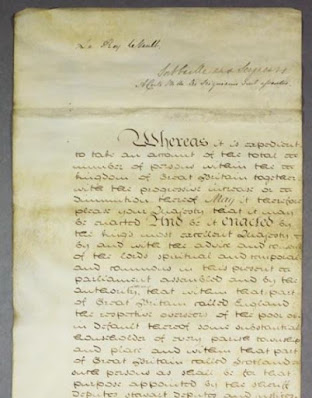Native of where exactly?
In Australian documents, especially those from before 1950, you might come across the term "native of". But what does it actually mean?
The Cambridge Dictionary defines it as "relating to or describing someone's country or place of birth, or someone who was born in a particular country or place." The Webster Dictionary describes it as "belonging to a particular place by birth."
In practice, though, it doesn't always refer to just the place of birth. Here's an example to clarify:
Sylvia Heard was born in Hale, Surrey, UK, lived in Farnham, Surrey, UK, for two years, and then moved to Australia. If asked where she was a "native of," the answers could be:
-
Hale
Farnham
-
Surrey
-
England
-
United Kingdom
-
Australia
All of these answers would be correct!
There's also some history behind the term "native of" in Australia. Up until 1948 (and in some legal cases until 1986), being a "native of Australia" meant someone born in Australia and, therefore, a British subject, since Australia was part of the British Empire. This was true no matter the race of the parents, and it didn’t refer to being Aboriginal.
It's important to note that Australian birth certificates have never required the race of parents to be mentioned, though you might sometimes see it in brackets on death certificates, attestations, or baptism records. However, this information is only on the original documents, not on the indexes.
When joining the army people where asked where they were 'native of' to ensure they did not come from a country Australia was at war with. The question they may have been asked was 'where do you come from?'. The answer could be a town or country, but not necessarily where you were born.
Another question asked was "are you natural born or a naturalised British Subject?'. The term 'natural born' means born in Australia or the British Empire. So someone born in Canada will have the answer natural born British Subject (ie. Canada); or it may simply have the answer as N.B. or N.B.B.S. Sometimes the answer will simply be yes (as in the form below)
Sometimes a document will simply say 'nationality', which is clearer, or ask if British or other as in the passenger manifest example below.
What are the clues that you may have Aboriginal heritage? Probably the clearest evidence is through a DNA test, but there may be some clues in old documents. Look for:
- Only one name (eg. John) no surname
- (A) or (abg) in brackets next to a name
- The term 'native' next to a name
The truth is however, none of these clues may exist in documents, and it will be original documents you need to look at (not indexes). Of course, prior to colonisation and then registration none of the usual documents exist for Aboriginal people, their history is oral and you need to talk to Elders to find out who you are related to. Even after registration in Australia, race is not recorded in most cases.
So when you see the term "native of" it is an indication to look a little deeper into the information and possibly go back to original documents. It may mean where you were born or it may mean where you came from at any point in time.




Comments
Post a Comment
Thank you for your comment on my Blog. I love to get feedback and information to share from my readers.
To keep up to date simply follow me on facebook or subscribe using the button at the top of the blog page.
Barb